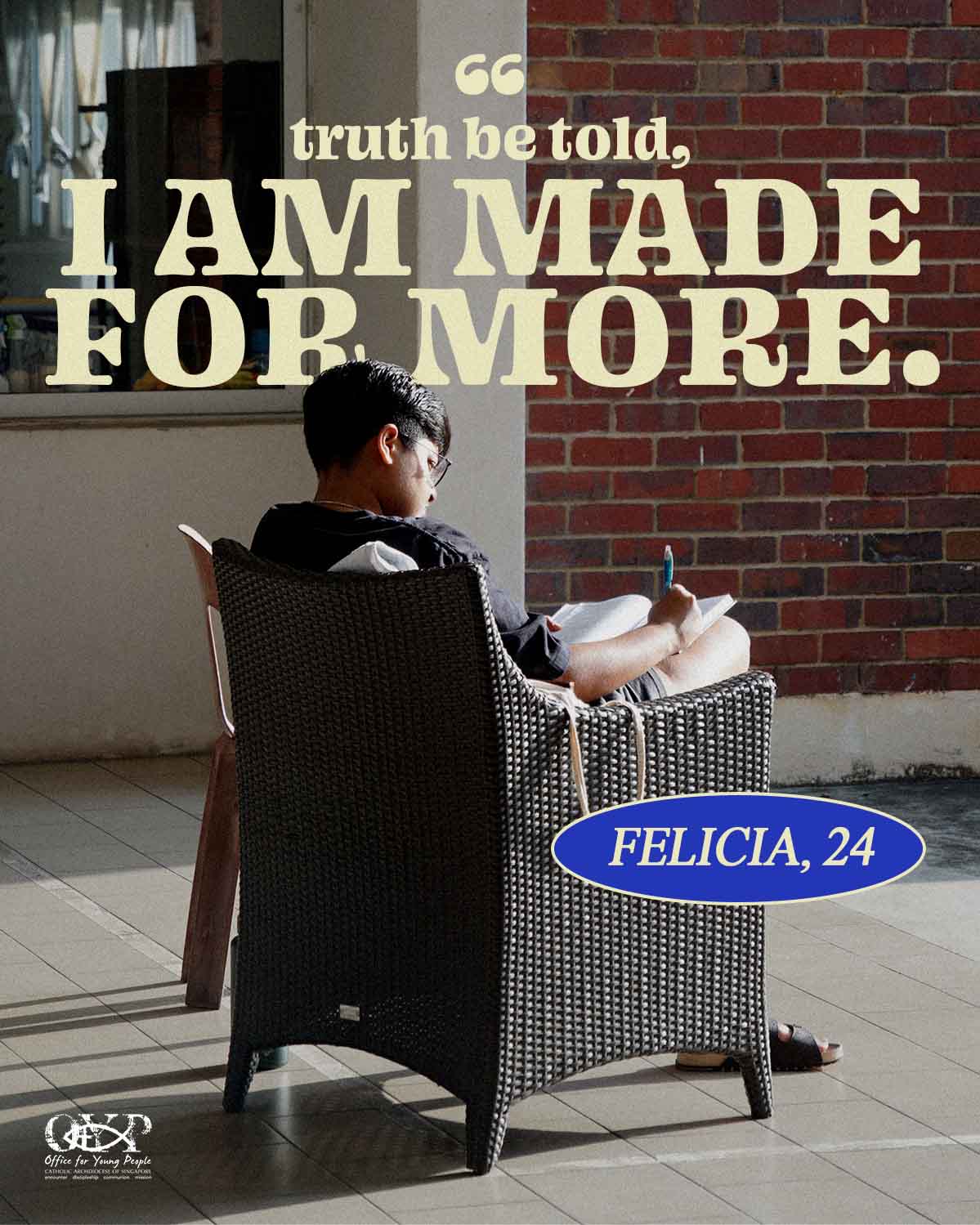By Patricia Choo and Matthew Soo
In our broken world today, it is undeniable that some relationships – even those between married couples, might break down. One doesn’t have to look too far to see instances of infidelity or even abuse. Yet despite the brokenness of the World, the Catholic Church has held that Divorce in the sense of a dissolution of marriage cannot be recognized. Why is this so? This article explains the difference between divorce and annulment, why the Church doesn’t recognize divorce, and where this leaves couples who are struggling.
Why doesn’t the Church recognize divorce?
The Church doesn’t recognize divorce for two reasons. First, the Church cannot recognize what is impossible – in that it lacks the authority to revoke or abolish the marital bond established by God himself. Second, divorce injures the covenant of salvation. Preliminarily, it is necessary to understand that the term “divorce” used in this article means the dissolution of a marriage. This is opposed to the Church’s understanding of a “civil divorce”, which speaks to a change in the legal status of a couple. We turn to consider the reasons for the Church’s non-recognition of divorce.
First, the Church lacks the authority to revoke or abolish the marital bond established by God himself. In Matthew 19:6, Jesus said that in marriage, husband and wife “are no longer two, but one flesh. Therefore what God has joined together, let no one separate.” What this means is that, upon entering into marriage, the covenant between the spouses is integrated into God’s covenant with man. This marriage bond which has been established by God gives rise to a covenant guaranteed by his fidelity. Consequently, the Church lacks the power to contravene this disposition of divine wisdom. (CCC 1638 – 1640).
Second, the Church understands that divorce does injury to the covenant of salvation, of which sacramental marriage is the sign (CCC2384). This sentence can be understood as making two interrelated points. The first point relates to the quality of marriage; which is a sacrament instituted by God. This means that it is an efficacious sign of the covenant between Christ and his Church (CCC 1617). Hence, marriage reflects the heavenly reality of the love between Christ and his Church. The second point flows from the first. Since a marriage is a sacrament (an outward sign of the heavenly reality), divorce perverts this reality of the salvific work of Jesus Christ who through his incarnation, death and resurrection has redeemed the union between God and his people. This disorder occurs since the dissolution of the marriage implies that God’s love for his people could similarly fail.
Taken together, what these paragraphs show is that the Church lacks the power to dissolve a marriage. One a couple has formed a marital bond, the Church believes that nothing apart from death can dissolve it. Additionally, the Church does not encourage divorce, since that is inconsistent with the reality of Christ’s love for his Church.
What about an annulment? Isn’t that just a different way of saying “divorce”?
While you may have heard of an annulment as a “Catholic Divorce”, that is incorrect. The key difference between an annulment and a divorce is the fact that an annulment holds that the marriage was void ab initio – meaning that there was never a marriage bond to begin with. In contrast, a divorce necessarily requires the marriage bond to exist, and attempts to dissolve that bond. We briefly describe how an annulment occurs.
In the Church, the absence of the capacity to marry, consent, or a valid form of marriage – will mean that a marriage is considered null. This is since these three criteria are necessary components of a valid marriage.
- The capacity to marry relates to whether a party is capable of marriage. This arises where there are no impediments to marriage under Canon Law (See Can 1083-1094). For example, possible impediments include being already married, bishops, priests, and deacons, those in religious vows of celibacy, and insufficient age. Note that this is not an exhaustive list.
- Second, consent must be “freely expressed”. CCC 1627 explains this by saying that the consent “must be an act of the will… free of coercion or grave external fear”. Hence, each person must have sufficient understanding of what they are consenting to. If one intentionally excludes an essential element of marriage in practice, one does not adequately consent to the marriage, making it void.
- Third, the “form” of the wedding refers to the need for a Catholic wedding ceremony contracted before a priest or deacon in the presence of two witnesses (See Can 1108-1123). Note that a Catholic remains bound to the Church’s form of marriage even if he chooses to leave the Church later on.
While a single invalidating factor is sufficient for a declaration of nullity, in some cases the tribunal finds no grounds for annulment, even after appeals have been spent. A civil divorce may take place in order to protect and care for the spouses and their children (CCC 2383). However, the spouses are still held together by their marriage bond, as its validity stands.
But what if I cannot get an annulment
The Church is not blind to the brokenness of our world. While divorce is impossible, the Church recognizes that there may be situations where either the spouses or their children may be in grave mental or physical danger, or where there may be infidelity within the marriage (Can 1152-1153). In such cases, the temporary physical separation of spouses (suspension of conjugal living) while maintaining the marriage bond is permitted (CCC 1649).
Here, it is important to recognize that in these situations, the couple remain husband and wife and are not free to contract a new union. Here, the ideal situation would be the reconciliation of the couple. Importantly, this is not meant to be done alone. The couple is invited to rely on the grace of Christ (CCC 1642). Further, the entire Christian community is called to help these persons live in a Christian manner and in fidelity to their marriage bond (CCC 1649).
Ultimately, to bind oneself for life to another human being is a difficult thing. Yet the definitive and irrevocable love that God loves us with is one that married couples share in. It is this love of God which sustains them, and that by their own faithfulness allows them to be witnesses to God’s faithful love (CCC 1648). May we as a community continue supporting the struggling couples around us, and pray for the grace to act from a place of love toward them.





